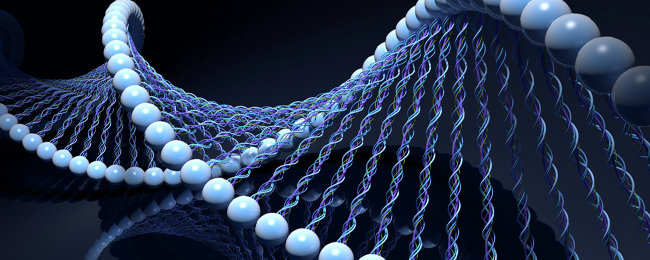
Molecular diagnostics assess your biological makeup at the genetic level. It categorizes cancer using technology such as mass spectrometry and gene chips, and focuses upon patterns in different types of cancerous or precancerous cells. Unlocking DNA code can reveal variations between individuals which may represent a predisposition to develop a disease or even treatment options that may be more effective in some people. These DNA codes are improving the clinicians’ ability to diagnose cancer. Soon all cancers may be diagnosed this way.
The molecular diagnostics division of the Clinical Laboratory of UC Health University Hospital is a CAP accredited laboratory division that offers diagnostic tests on the nucleic acids (DNA or RNA) in the submitted samples. Testing includes quantitative assays for HIV, HBV and HCV viral counts; qualitative assays for high risk HPV, Chlamydia trochomatis, Nisseria gonorrhea, Influenza A and B, C. difficile, group B Streptococcus, Group A Streptococcus and enterovirus. In addition, the laboratory also performs assays for thrombophilia risk factors such as Factor V Leiden and prothrombin mutations.
The laboratory receives around 12,000 samples per year including blood, urine, stools, spinal fluids, cervical and throat swabs. Testing platforms include real-time PCR, loop mediated isothermal amplification of DNA (LAMP) and hybrid capture. The laboratory is also committed to training clinical fellows, residents, medical students and laboratory associates.
